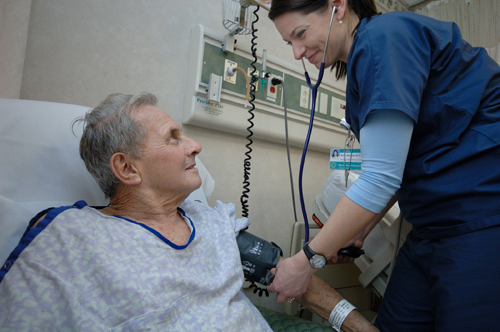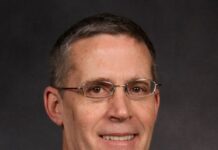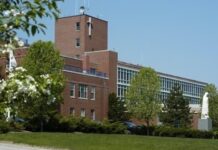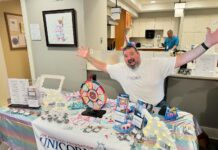
Some differences are visible: the slower movements, the hesitance walking, and of course the thinner frame, the silver hair, the wrinkled skin. Others require a little more observation: poor hearing or a fading mind, unable to remember things or keep up with conversations.
But for doctors in hospitals and private offices alike, it’s the invisible differences that can be most challenging. The weakened immune systems, which can make elderly patients prone to deadly infections. The confluence of multiple diseases, which means you have to worry about how the arthritis medicine will affect the heart condition, in fact how all the drugs will interact with one another.
And despite the fact that older people, especially those in their 80s and beyond, visit doctors far more often and are far likelier to be hospitalized than the rest of the population, physicians’ knowledge of how best to treat them is often limited, due both to insufficient training and to a shortage of helpful research.
That, says Richard W. Besdine, a professor of medicine at Brown University’s Warren Alpert Medical School and director of the geriatrics division there, is why an ongoing project at Brown funded by two major grants is so critical.
Under the leadership of Besdine, who also heads the geriatrics divisions at Rhode Island Hospital and The Miriam Hospital and is chief medical officer at Quality Partners of Rhode Island, Brown and the hospitals have been building up their expertise in geriatrics – not just by adding specialized clinicians and researchers, but also ensuring all doctors-in-training and active physicians know more about the elderly.
That effort got a substantial boost in 2006, when the Donald W. Reynolds Foundation gave Brown a $2 million, four-year award to provide aging-related content for every course for every year of medical school.
And last month, the John A. Hartford Foundation, the nation’s largest private foundation focused solely on aging and health, named Brown a Center of Excellence in Geriatric Medicine and Training. The Alpert Medical School was one of only three medical schools in a pool of 27 chosen for the designation, which comes with a three-year, $450,000 grant that will be used to train 13 geriatrics junior faculty and fellows. (The money goes to Rhode Island Hospital, where those doctors will be based.)
Only 14 medical schools nationwide, including Brown, have ever gotten both grants, Besdine said. Yale, Harvard and Boston universities’ medical schools also have received the grants, but none of them is doing a complete curriculum overhaul, which puts Brown “way ahead of the pack,” he said.
Training more geriatricians is crucial, Besdine said, because of the “silver tsunami” headed our way with the aging of the baby boomers and the already substantial growth in the elderly population. According to the U.S. Census Bureau, the number of Americans age 65 and older will double to 71 million by 2030, and already, Besdine said, there are only about four geriatricians for every 10,000 people.
But as valuable as the Hartford grant will be in producing geriatrics teachers and researchers, he added, “we could turn out 50 geriatricians per year and not meet the need,” because the shortfall is already so severe. “Every physician has to understand the theory and practice of geriatrics, because every physician is treating a large number of older people,” he said.
The research component is also crucial, Besdine said, because elderly patients are generally excluded from clinical trials. “Most of the new technologies in medicine we don’t know whether they are applicable to older patients with multiple diseases, multiple medications and functional impairments,” Besdine said. “That is a major problem in our field and for those of us personally who aspire to be older than 75.”
For hospitals, Besdine said, geriatrics expertise is important because elderly patients account for more than a third of surgeries, for example, and they require different pre-op and post-op management to avoid serious infections and other complications.
And geriatricians can help ensure the elderly aren’t over-treated, as is especially common in the last few months of life, said Dr. Edward Wing, chairman of the departments of medicine at Rhode Island Hospital and at Alpert Medical School. When someone looks at the big picture and sees a patient taking 15 or 20 drugs, and undergoing multiple treatments, it’s easier to prioritize.
Besdine has built a team of geriatrics experts who help doctors at the hospitals optimize the treatment of elderly patients, Wing said, reducing the number of drugs and the doses and focusing more on quality of life and ability to function: walking, balance, avoiding falls. If this became the norm nationally, Wing said, the impact would be enormous.
“You would be taking much better care of older patients,” he said. “You wouldn’t be doing unnecessary things to them. The cost savings would be astronomical. And it would be a much more humane and appropriate approach to care.”
That’s the case in the community as well. Dr. Frank Basile, a primary care doctor at University Medicine Foundation in Providence, said that even though his average patient is 50, on a daily basis, he sees a far larger share of elderly people, and it’s a challenge.
“They have many different problems and many different doctors, all of whom often don’t talk with each other,” he said. Seeing patients in their 80s takes much longer – because they move more slowly and need more help, and may have impairments that get in the way – and it’s hard to pull all the information together to get a full picture of their health and really help them, Basile said.
More geriatrics expertise is part of the answer, Basile said, but it’s not enough. The delivery of care has to change, too, which is why he believes efforts to create a new “medical home” model of care for patients of all ages would benefit the elderly in particular.
Having all the people who treat a patient in the same place, sharing information, would make a big difference, he said, as would creating a new business model that allows doctors to take as long as they need with each patient to cover the full scope of their medical needs.
“You’re really getting at the issue of fragmentation,” he said, “and to me if there is a one problem in medicine that could yield huge savings to fix, it’s the fragmentation problem.” ·












